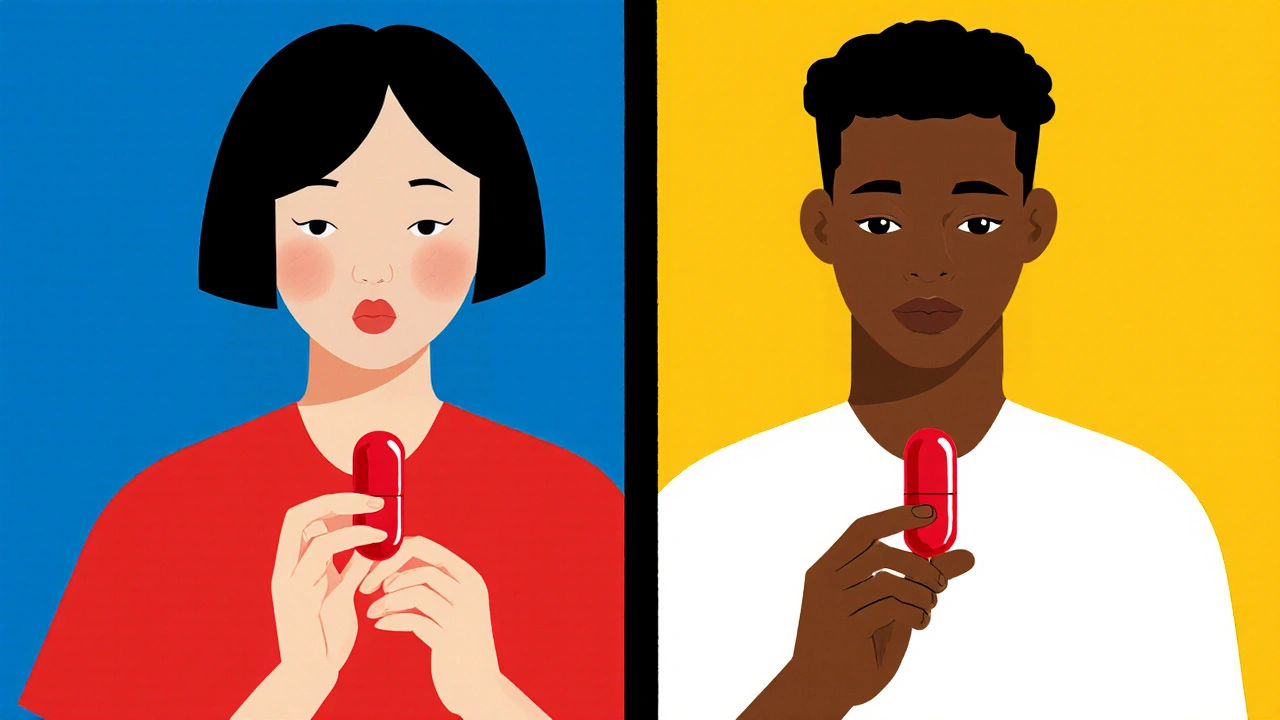Genetic Polymorphisms: How Your DNA Shape Affects Medications and Health
When we talk about genetic polymorphisms, common variations in DNA that occur naturally in more than 1% of the population. Also known as SNPs, they're not rare mistakes—they're normal differences that make each of us respond to drugs, food, and stress in unique ways. These tiny changes in your genes can mean the difference between a medication working perfectly or causing serious side effects.
That’s why pharmacogenomics, the study of how genes affect how your body responds to drugs is no longer just science fiction. It’s already changing how doctors pick antidepressants, painkillers, and blood thinners. For example, someone with a specific genetic polymorphism in the CYP2D6 gene might process codeine too fast—or too slow—turning a simple pain reliever into a danger. Others with variations in the VKORC1 gene need much lower doses of warfarin to avoid bleeding. These aren’t edge cases. They’re common enough that labs now test for them before prescribing.
And it’s not just about drugs. DNA variation, the broader term for differences in genetic sequences between individuals also affects how you handle caffeine, absorb vitamins, or even your risk for conditions like osteoporosis or COPD. That’s why posts here cover everything from how calcitonin works for bone loss to why some people react badly to NSAIDs like mefenamic acid. It’s not random—it’s in your genes.
You won’t find one-size-fits-all answers in medicine because your body isn’t built like everyone else’s. That’s why understanding genetic polymorphisms helps you ask better questions, avoid bad reactions, and work with your doctor to find what actually works for you—not just what works for the average patient.
Below, you’ll find real-world guides that connect these genetic differences to everyday treatments: from how gene therapy is fixing cystic fibrosis to why some people need different doses of metformin or bupropion. These aren’t abstract theories. They’re stories about real people, real meds, and the hidden code in their DNA that made all the difference.

Ethnicity & Drug Response: Key Genetic and Metabolic Differences
Oct 26 2025 / MedicationsExplore how genetic and metabolic differences across ethnic groups shape drug response, key enzymes, clinical guidelines, and future steps toward true precision medicine.
VIEW MORE